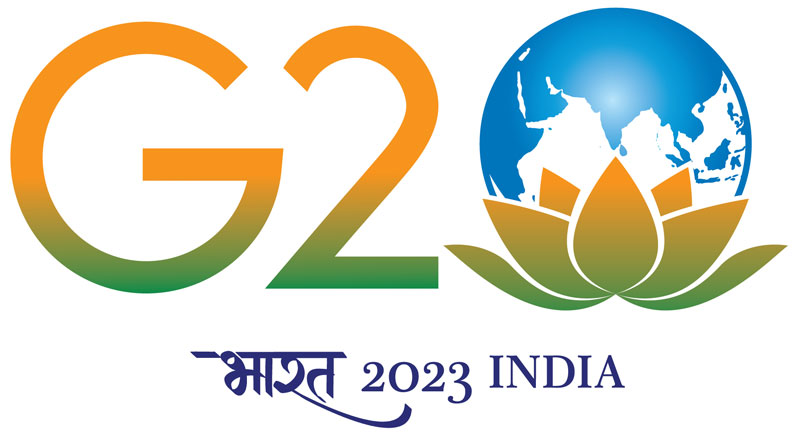Capacity building of masons, carpenters, artisans
Building home-stays under Madhya Pradesh Tourism Board Project in partnership with Hunnarshala Foundation
The Government of Madhya Pradesh, through the Madhya Pradesh Tourism Board (MPTB), has envisioned a program for responsible rural tourism across the state through mobilising and empowering families staying in several villages with tourism potential, within themselves and/or regions around. Tourism will be promoted through development of homestays in selected villages.
Currently 100 such villages have been selected around the state. To select the appropriate families in these villages for whom these homestays will be developed, local organisations have also been appointed to assist with the groundwork and to handhold the families with the process. Each village is expected to have 6-8 curated homestays, providing an experience of traditional living and accordingly incorporate traditional architectural styles.
It is required to train masons, carpenters and artisans aimed at improving their capacity to build houses with traditional technologies for home stay facilities for selected homeowners. This will also provide an opportunity for artisans to get livelihood through their enhanced knowledge for traditional construction systems in the region, as well as these artisans will get work under government programmes and will provide services to private resort and hotel owners. To train these masons, carpenters and other artisans, Hunnarshala Foundation has been appointed as a technical partner by MPTB.
The main objective of the program is to increase the reach of government welfare schemes and to address challenges in sectors such as education, health, nutrition and innovation in tribal areas, in order to ensure an integrated and focused approach to the socio-economic development of the Scheduled Tribes population in a coordinated and planned manner. Keeping in mind our core competence in the field of CSO facilitation and screening, MoTA has appointed BRLF to carry out a rigorous screening process for shortlisting proposals from different parts of the country on various themes such as education, health and innovation.
Programme Structure:
As part of integrated development, artisans will be one of the major stakeholders in future. Building home stays by these masons will lead to a showcase of traditional wisdom and identities of communities through their housing as well as demonstrations of economic, low carbon footprint green environment friendly housing technologies and promote a “vocal for local” theme initiated by the Honourable Prime Minister of India.
To achieve the above objectives, different types of training modules have been worked out according to the prevailing and traditional building practices in the region. These modules will be used for on-site training with hands-on practice and basic theoretical understanding of technologies.
Under the project, Hunnarshala has been awarded with 30 villages of Jhabua, Dhar, Agar, Raisen, Hoshangabad, Bhopal, Sehore, Chhindwara, Dindori and Umariya districts. The team of Hunnarshala has made visits to 25 villages to understand the community, traditional building practices and art & crafts of the local region. The team has then developed the designs for proposed homestays and have shared with the community to get their feedback to finalise the design. Out of 30 villages, a total of 8 villages of Dhar, Jhabua and Agar are proposed under this project.
The main objective of the program is to increase the reach of government welfare schemes and to address challenges in sectors such as education, health, nutrition and innovation in tribal areas, in order to ensure an integrated and focused approach to the socio-economic development of the Scheduled Tribes population in a coordinated and planned manner. Keeping in mind our core competence in the field of CSO facilitation and screening, MoTA has appointed BRLF to carry out a rigorous screening process for shortlisting proposals from different parts of the country on various themes such as education, health and innovation.
This is a working paper on the status of agriculture in Bodoland. The Bodoland Territorial Region is an autonomous region in Assam. A high agricultural productivity characterises Bodoland for many crops. Accordingly, the authors analyse agricultural productivity by looking at the latest data on inputs (e.g. land, water, fertiliser, pest control, agricultural machinery, finance and labour) and outputs (types of crops, coverage and output). The role of agriculture is important for the community and is fully connected with its culture and economy. The paper also provides a series of recommendations for improving the agriculture in the region.
- Bodoland is one of the areas in Assam with high agricultural productivity for many crops. But most of the area under crops (around 60 percent) is used for rice production. So, there is potential for increasing their production by increasing the area under other crops. Additionally, we can say that, by increasing the area under some other crops which enjoy good productivity and simultaneously increasing the productivity of some other crops, farmers in Bodoland can aspire to increase their income.
- Bodoland’s agriculture is mostly rainfall-dependent. 29 percent of Bodoland’s GCA is irrigated. Although that is higher than the state average, it is far below the average irrigation coverage in the country. Also, most of it is done through Surface Irrigation and hence, the area does not have the problem of a declining water table. Which means, water-intensive crops can be produced here without being too concerned about sustainability. Beyond rice, it could target sugarcane production given there is a proper processing system for the crop.
- Per hectare fertiliser consumption is low in Bodoland. Productivity of some crops could be increased by applying more fertilisers in a balanced way with proper irrigation systems in place so that the outcome of agricultural activities can be less dependent on the erratic nature of rainfall, especially in these times of climate change.
The proposed capacity building program is targeted towards the local masons, carpenters and artisans of the mentioned villages. These masons and artisans generally go out for work in nearby towns or in other districts, but with the help of this training, they may get work at local level under different projects of Madhya Pradesh Rural Tourism Board as well as other government and non-government agencies. This will enhance their livelihoods locally and will contribute to checking migration. This project will also help in preservation and promotion of traditional knowledge related to house construction and will lead to showcasing tribal culture to the outer world.

